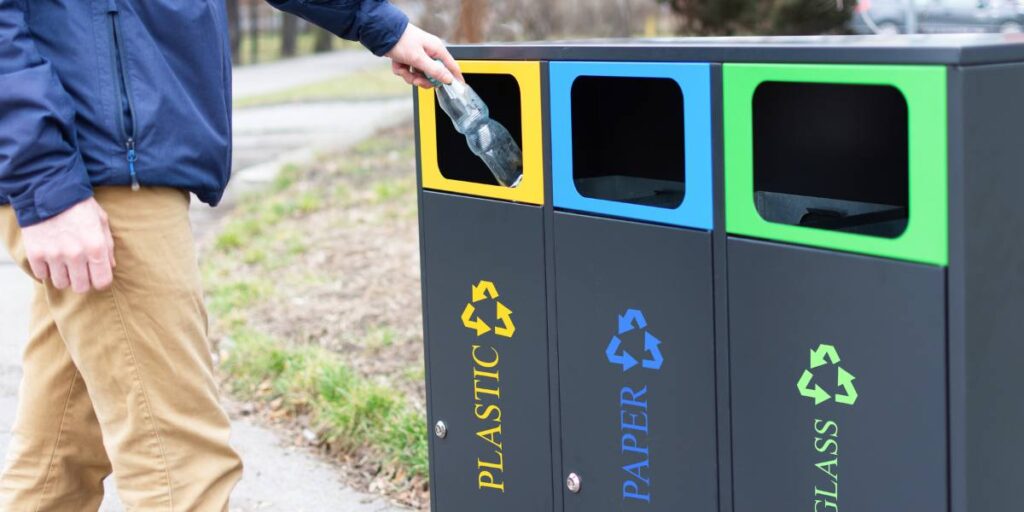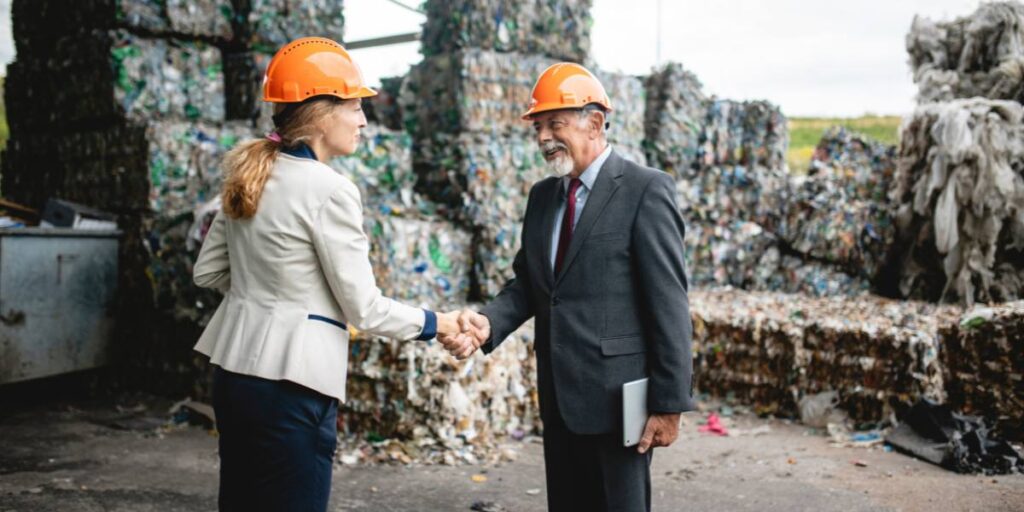As cities expand and populations rise, the challenge of managing waste effectively becomes more pressing than ever. Without a solid waste management strategy, urban areas face environmental damage, public health risks, and resource depletion.
However, by embracing innovative and sustainable practices, cities can turn waste into an opportunity for cleaner, greener living. Here are dynamic strategies to elevate waste management and reshape urban landscapes.
Create a Visionary Waste Management Plan
A successful waste management approach starts with a clear, comprehensive plan that addresses every stage of the waste cycle—from generation to disposal.
Cities require a progressive strategy that not only addresses waste reduction but also encourages recycling and champions a circular economy.
Involving the public in creating this vision guarantees long-term success, cultivating a sense of community that supports sustainable objectives.

Encourage Waste Segregation at the Source
Waste sorting starts at home, and it’s essential for cities to encourage residents to get involved. Providing clear guidelines and running public awareness campaigns can teach households how to properly separate recyclables, organic waste, and non-recyclables.
Placing easily accessible bins in public spaces and residential areas can further support these efforts, making it convenient for people to participate in improving waste management daily.
For larger waste, residents might consider renting a dumpster from Mad Trash in Denton to streamline disposal

Modernize Waste Collection Systems
Efficiency is key when it comes to waste collection. Cities can boost productivity by using smart technology, like GPS and route optimization, to streamline collection routes and reduce carbon emissions.
Pay-as-you-throw (PAYT) programs encourage residents to minimize waste, while electric or hybrid collection trucks help cut down on pollution. It’s a win-win for both the environment and the city’s operational costs.
Boost Recycling and Composting Programs
Recycling and composting are key to managing waste in a sustainable way. Cities need to focus on setting up modern recycling systems and make it simple for people to recycle all kinds of materials, from plastics to metals.
When it comes to organic waste, cities can encourage composting programs that turn food scraps and yard waste into nutrient-rich compost, which can be used for local gardens and urban farms.
Rewarding participation with incentives can make recycling and composting part of the urban culture. Renting a dumpster can assist in managing recyclable materials during large cleanouts; for instance, Saginaw residents can utilize this service effectively.
Leverage Waste-to-Energy Solutions
Waste that can’t be recycled still has potential. Waste-to-energy (WTE) technologies convert non-recyclable materials into renewable energy, offering cities a sustainable way to handle waste while generating power.
By integrating waste-to-energy plants into the broader waste management system, cities can reduce landfill reliance and produce clean energy. Ensuring these systems are eco-friendly and efficient is key to success.
Properly managed waste, such as that collected through dumpster rentals in Hurst, can contribute to waste-to-energy initiatives.
Embrace Smart Waste Technologies
Smart technologies are transforming how cities manage waste. Sensor-equipped bins can alert collection teams when they’re full, preventing overflow and optimizing collection schedules.
Apps that let residents report waste issues in real-time help city authorities respond quickly, while data analytics offer insights into waste patterns, helping cities plan smarter. Even AI is stepping in, streamlining sorting in recycling centers for faster, more accurate waste processing.
Foster a Culture of Sustainability
Building a cleaner city requires a shift in mindset. Public education campaigns can inspire residents to rethink their approach to waste, whether it’s reducing consumption, recycling more, or choosing eco-friendly products.
Schools, community events, and social media campaigns are powerful tools to spread the message. Partnering with local businesses for workshops on sustainable living helps reinforce these habits, building a more responsible and informed community.

Adopt Extended Producer Responsibility (EPR)
Extended Producer Responsibility (EPR) puts the onus on manufacturers to manage the end-of-life of their products.
By holding companies accountable for the waste their products generate, EPR encourages smarter design—less packaging, more recyclables, and products that last longer.
Cities can push for stronger EPR policies, creating a culture of responsibility that extends from the production line to the recycling bin.
Improve Landfill Management and Minimize Dependency
While the goal is to reduce waste heading to landfills, it’s essential to manage existing landfills responsibly. Modernizing landfill practices, such as capturing methane for energy or reducing harmful runoff, can minimize their environmental impact.
Additionally, cities should limit what goes into landfills by promoting recycling, composting, and waste-to-energy systems, all while encouraging businesses and residents to rethink waste.

Partner with the Private Sector
Collaboration between the public and private sectors can revolutionize urban waste management. By teaming up with private waste management companies, cities can access cutting-edge technologies, improve service efficiency, and even reduce costs.
These partnerships help ensure that waste collection, recycling, and disposal are carried out at the highest standards.

Build a Circular Economy
To truly redefine waste management, cities need to embrace a circular economy. Instead of the traditional “take-make-dispose” model, a circular economy focuses on designing products that can be reused, repaired, or recycled.
By encouraging businesses to adopt sustainable practices and working with communities to keep materials in use for longer, cities can reduce waste, create new jobs, and stimulate local economies.

Conclusion:
Improving waste management in cities is about more than just cleaning up the streets—it’s about creating a healthier, more
sustainable future for everyone.
By investing in smart technologies, fostering a culture of sustainability, and rethinking traditional waste practices, cities can lead the way in protecting the environment and improving the quality of urban life.
As populations grow, the need for innovative, sustainable waste management solutions will only become more urgent, offering cities a chance to lead by example and build a better future.
FAQs on How to Improve Waste Management in Cities?
Why is waste management crucial for urban living?
Effective waste management is vital for safeguarding public health, curbing environmental pollution, and preserving our precious natural resources.
When waste is mishandled, it can lead to blocked waterways, heightened greenhouse gas emissions, and various health risks. That’s why it’s imperative for cities to embrace sustainable practices that keep our communities thriving and our environment clean.
What challenges do cities face in managing waste?
Urban areas grapple with a range of waste management challenges, including skyrocketing waste generation, insufficient recycling infrastructure, illegal dumping, a lack of public engagement in waste segregation, and budget constraints.
Tackling these issues calls for innovative and strategic solutions to create efficient waste management systems that benefit everyone.
How can residents make a difference in waste management?
Residents are the heartbeat of effective waste management! By practicing waste segregation at home, getting involved in recycling
and composting programs, and cutting down on waste production, individuals can have a substantial impact.
Sharing knowledge about sustainable practices within the community helps cultivate a culture of responsibility and environmental stewardship.
What exactly is waste segregation, and why does it matter?
Waste segregation involves sorting different types of waste—like recyclables, organic matter, and non-recyclables—right at the
source.
This practice is crucial because it boosts the efficiency of recycling and composting processes, minimizes landfill waste, and fosters
responsible waste disposal. It’s a simple yet powerful step everyone can take!
How can cities inspire residents to recycle?
Cities can ignite a recycling revolution by providing accessible recycling bins, launching educational campaigns that highlight the
benefits of recycling, and introducing incentives, such as utility bill discounts for active participants in recycling programs.
Making recycling easy and rewarding encourages more residents to get involved.
What role does technology play in modern waste management?
Technology is a game-changer in waste management! From smart bins that notify collection teams when they’re full to GPS tracking
that optimizes collection routes, tech innovations streamline the entire process.
Mobile apps allow residents to report issues effortlessly, and AI-driven sorting systems in recycling facilities enhance efficiency and reduce costs. Embracing these advancements leads to better service delivery and a cleaner environment for all.
